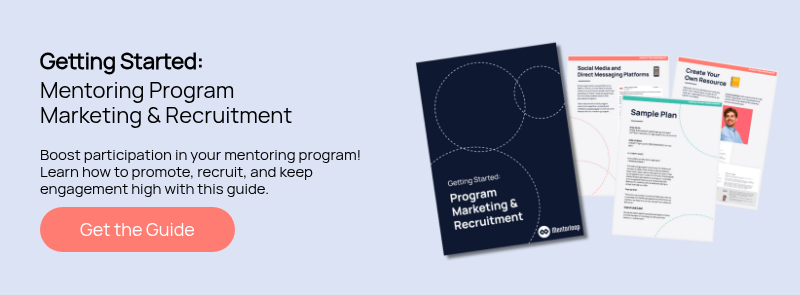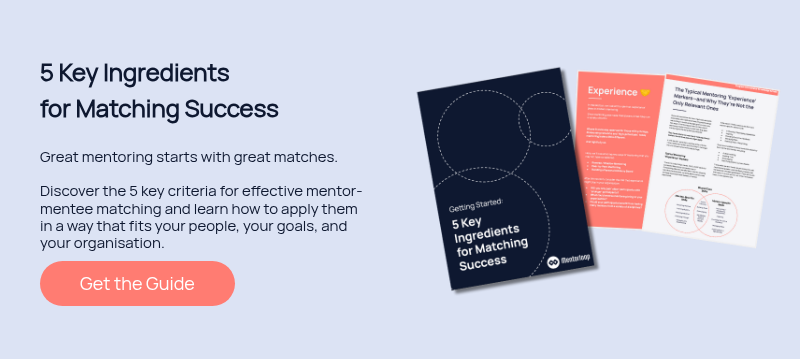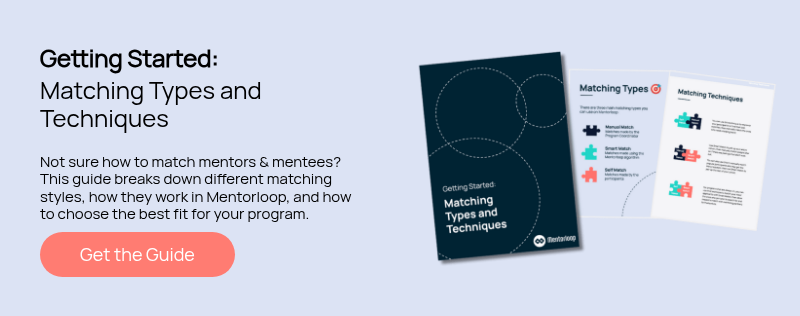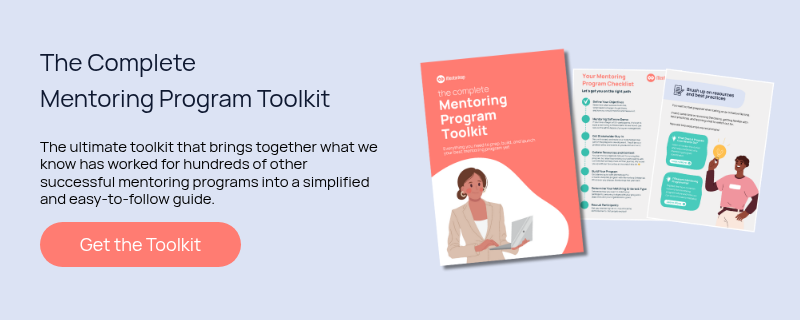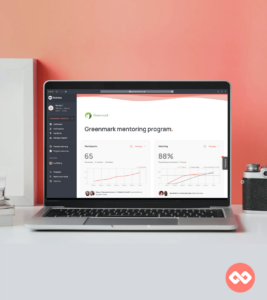Starting and/or running an organisational mentoring program isn’t easy – nor is running any people program. So what are some of the major mentoring program challenges that every program coordinator should be aware of before heading into the mentoring fire? Because your employees, members or students likely take their time – and their personal development pretty seriously.
Challenge: The dreaded admin burden
One of the major and early challenges anyone running a mentoring program faces is the heavy admin burden of program coordination. Coordinating a mentoring program (at a minimum) requires juggling choosing program participants; gathering their ‘profiles’ for matching; making the matches themselves; ensuring the right communication channels are in place for mentors and mentees; supplying mentors and mentees with supplemental content and resources; and then measuring and reporting on outcomes.
As you can see, this is a lot of stuff. And stuff requires a good deal of coordination, work, and running around. So be prepared to manage a lot of moving parts. All while smiling, of course.
See how mentoring software can completely eliminate the admin burden >
Challenge: Generating interest in the program
If you’re running your organisation’s mentoring program, you might not be a marketer. But you will have to tackle the challenge of generating demand for the program. In our experience, demand for mentoring has always outstripped the supply – and organisations typically don’t have to do too much work in getting people to sign up.
But if you have a large organisation, and the desire to build a mentoring program of significant scale, you will have to make sure that people are aware of the program – and explain to them why they should be involved. Don’t be afraid to pull the marketing team in to create some pretty infographics if need be.
If you’re keen to get a deep dive into mentoring program marketing and recruitment, download our free guide!
Challenge: Getting those all-important matches right
The key to creating productive and lasting mentorships is to create synergistic matches. Now, there is no way to get matching 100% right. You are always going to have a few mentors or mentees who don’t buy into the program properly or match a mentoring pair who don’t quite see eye-to-eye, just like in any interaction between two humans.
So the best thing you can do is use your discretion, gather great matching data (including experience, skills, desired outcomes and interest), and potential software to speed the entire process up a little bit.
You could also remove this challenge entirely by letting program participants choose their own mentor or mentee.
If you want to learn more about matching criteria, we’ve got a free eBook that can help you out!
Or, for a more detailed look into different matching types and techniques, you can download this guide:
Challenge: Educating mentors and mentees
An equally challenging part of managing a mentoring program is providing mentors and mentees with the tools and resources they need to develop a productive relationship. Because organisational mentoring programs are semi-forced, you don’t know if the mentors have mentored before – nor whether the mentee has ever been involved in a mentoring relationship.
For this reason, you need to make helpful resources accessible to them in a light touch kind of way (not bombarding them with a tonne of front-loaded materials that make the whole thing seem like a hassle). What kind of resources? Simple ones: first meeting checklists; mentor-mentee expectation agreements; goal-setting frameworks; and any more specific or supplemental training materials. You’d be surprised by the impact that a little bit of direction has on mentorships.
Challenge: Keeping mentors and mentees actively engaged
Like anything in life, people are pretty psyched to do extracurricular activities.. initially. But this excitement wanes quickly and before long, you lose your mentoring program engagement. This is always going to be a challenge and one which you are only partially in control of. However, there are a bunch of things (and some of them really cool) that you can do to encourage and spur mentor and mentee engagement.
Challenge: Measuring and tracking program success
Another plaguing challenge will be tracking and proving the success of your program – both from an individual standpoint, and from an organisational standpoint. Unfortunately, unless you do overcome this challenge and track your program properly, or maybe use incorrect measurements, it may not last too long. Executive teams and management expect to see results in the year 2017 – and expect to be able to measure these results. Luckily, mentoring software has made this challenge largely redundant by doing all of the heavy lifting for you.
There are a number of other challenges that may arise, including highly specific challenges with individuals or individual mentoring pairs. However, if you get the framework and planning right – you will be on your way to not only mitigating these core mentoring program challenges, but leaving them in the dust on your way to mentoring management success.


